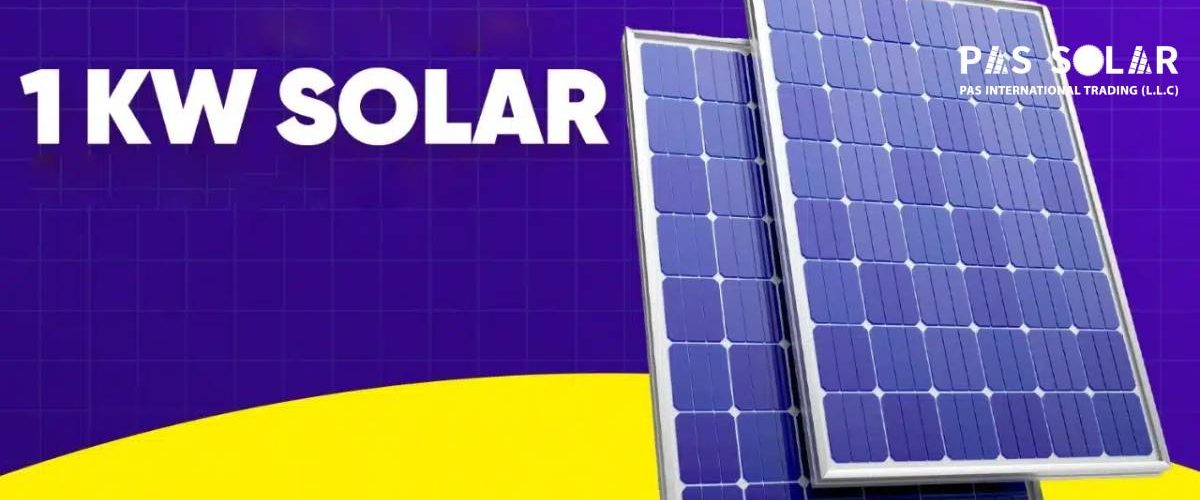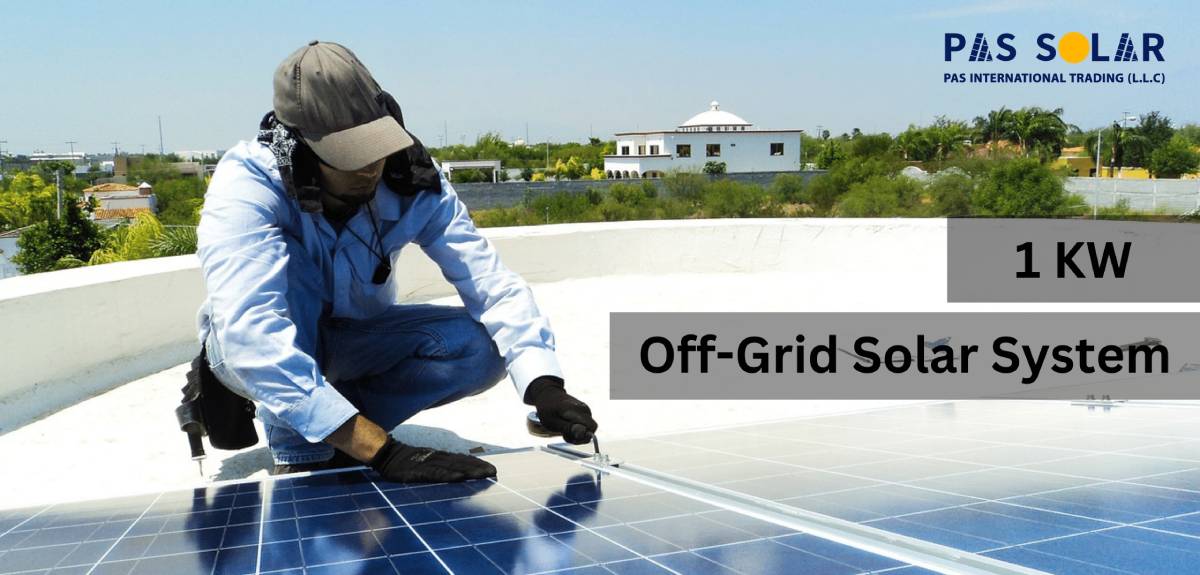

Many people wonder if 1 kW is enough to run a house in daily life. As the interest in affordable renewable energy continues to grow and it becomes more accessible and efficient, many homeowners are wondering if small-scale solar systems can meet their everyday needs.
With solar power, Dubai is becoming more efficient and accessible; even small systems like 1 kW can reduce your electricity bills and support eco-friendly living—especially when paired with smart energy management.
One of the most common questions we get at Passolar is, “Is 1 kW enough to run a house?” The short answer is: not quite—but it depends on household energy demands, daily sunlight hours, and usage habits. Let’s break down what a 1kW solar panel usage really means and whether it can support your residential use.
A 1kW solar panel usage typically generates between 4 to 5 kilowatt-hours (kWh) per day in regions with good sunlight exposure and system efficiency—this equals roughly 120 to 150 kWh per month. However, actual performance depends on multiple factors, including:
For tiny homes, off-grid cabins, mobile homes, or minimal usage scenarios, 1 kW might suffice. But in most modern households, especially with high-energy demands, it’s not a complete solution.
To answer whether 1kW is enough, we need to consider how much kWh a house uses per year. On average:
|
Type of Home |
Annual Consumption (kWh) |
Daily Average (kWh) |
|
Small apartment |
2,000–3,000 |
5–8 |
|
Medium-sized home |
8,000–11,000 |
22–30 |
|
Large modern home |
15,000+ |
40+ |
A 1kW system won’t replace your entire energy source—but it can help lower your electricity bills, reduce carbon output, and build a smarter, more flexible power strategy when combined with tools such as:
Store daytime energy for nighttime use—great for backup or critical loads. This reduces dependency on the grid and ensures you don’t waste any unused solar production.
Energy monitoring tools give you real-time insights into both consumption and solar output, helping you identify usage patterns and avoid overload.
Switching to low-consumption appliances makes a big difference. It allows you to do more with less, and it is important when working with limited solar capacity.
Combine solar with grid power or even small wind turbines for added reliability. This ensures consistent power even when sunlight is limited.

Here’s what a 1kW system might realistically run:
|
Appliance |
Daily Usage (hrs) |
Power Consumption (kWh) |
|
LED lights |
6 |
0.15 |
|
Laptop & phone charging |
5 |
0.2 |
|
Small fridge |
24 |
1.0 |
|
Fan |
5 |
0.3 |
In rural areas or for a minimalist lifestyle, 1kW solar panel usage can be enough (as long as you use power wisely). But adding high-consumption appliances such as a microwave, washing machine, or air conditioner would immediately exceed this.
While a 1kW system may not power an entire home, it can still offer reliable support. For instance, it can lower electricity bills by powering basic needs, serve as an emergency power source, or contribute to a larger hybrid system. The initial investment is typically lower, making it accessible for homeowners with limited budgets or minimal energy demands.
Still, homeowners looking for true energy independence or off-grid living should consider upsizing, perhaps to 3 kW, 5 kW, or more (depending on location, household size, and other consumption patterns).
However, with high-efficiency panels from Trina Solar, even a small system can contribute significantly to reducing your electricity bills—especially when paired with smart energy practices and storage solutions.
So, is 1 kW enough to run a house? For the average household, no, at least not entirely. But for those with very low energy needs or off-grid aspirations, it can be a starting point, especially when paired with storage, monitoring, and smart energy practices.
At Passolar, we help customers find the solar solutions that match their lifestyle and goals. Whether you’re starting small with 1kW solar panel usage or planning a full-scale off-grid independence, we’re here to guide you through smart, scalable energy solutions that grow with your needs.
PAS SOLAR is a Distributer of solar equipment based in UAE. Composed of a team of professionals with the goal to provide customers with the latest Tier 1 Solar system in the region.
"*" indicates required fields